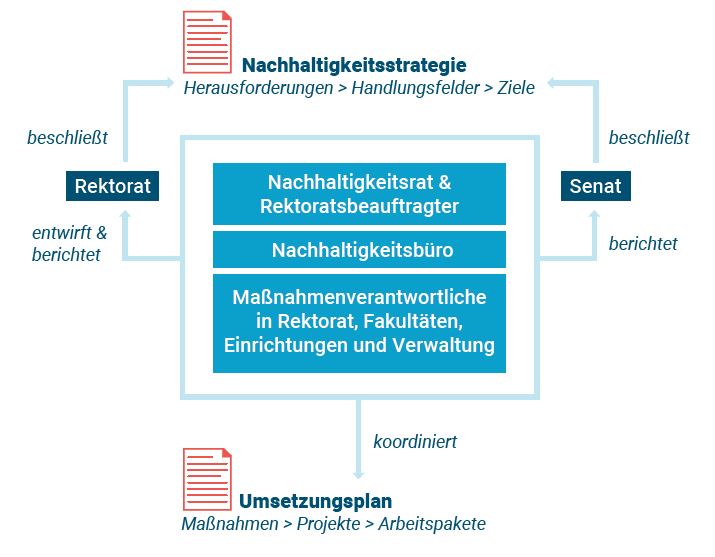University of Cologne adopts holistic sustainability strategy
After an intensive planning and development phase, the University of Cologne has adopted its sustainability strategy for the coming years. In doing so, it recognizes that sustainability in the ecological and social sense is one of the greatest challenges of our time. Issues such as climate change, environmental pollution or food insecurity threaten the well-being of communities around the world and increase social inequalities. To address this set of issues, the University of Cologne's sustainability strategy does not focus solely on reducing greenhouse gas emissions, but incorporates all dimensions and thematic fields of sustainability - ecological, economic, and social - in line with the university's diversity of disciplines and faculties. By taking a holistic view of the ecological, economic, legal and social consequences of social action, the strategy aims to help create meaningful framework conditions for an ecological transformation.
"As the University of Cologne, we are consistently committed to holistic sustainability. In doing so, we involve the entire university and our central performance dimensions of research, teaching and transfer, as well as organization and operation on campus," says Professor Dr. Axel Freimuth, former Rector of the University of Cologne.
The strategy's goals and measures include supporting research in the fields of action of the United Nations Sustainable Development Goals (SDGs), for example by promoting excellent researchers and research projects and establishing a center with new, interdisciplinary research approaches on sustainability topics. Furthermore, additional curricular and extracurricular offerings on SDG topics are being developed in teaching. This includes, for example, the establishment of new courses of study with a thematic reference to sustainability. Furthermore, the aim is to transfer knowledge to society by means of cooperation with non-scientific practice. The sustainable design of campus operations, for example through a steady and significant reduction in the consumption of fossil fuels, is also coming into focus in order to operate in a climate-neutral manner.
In order to link the sustainability strategy with the university's overall strategy, the rectorate has created a management structure for sustainability that enables a wide range of stakeholders to get involved. In addition to a central sustainability office, this includes the function of a rectorate representative for sustainability, Professor Dr. Günter Schwarz, as well as a sustainability council, which in turn is composed of students, scientists and employees in technology and administration. These institutions bundle and coordinate numerous initiatives and have jointly developed the sustainability strategy.
Together with scientists and students, with the rectorate, faculties, institutions and administrative offices, the next step will be to plan the implementation and to design transformation paths to achieve the defined goals. In the past, the university has already achieved initial successes towards a more sustainable, climate-neutral campus, among other things, with the determination of theCO2 footprint, the conversion to green electricity and an improved energy balance.

